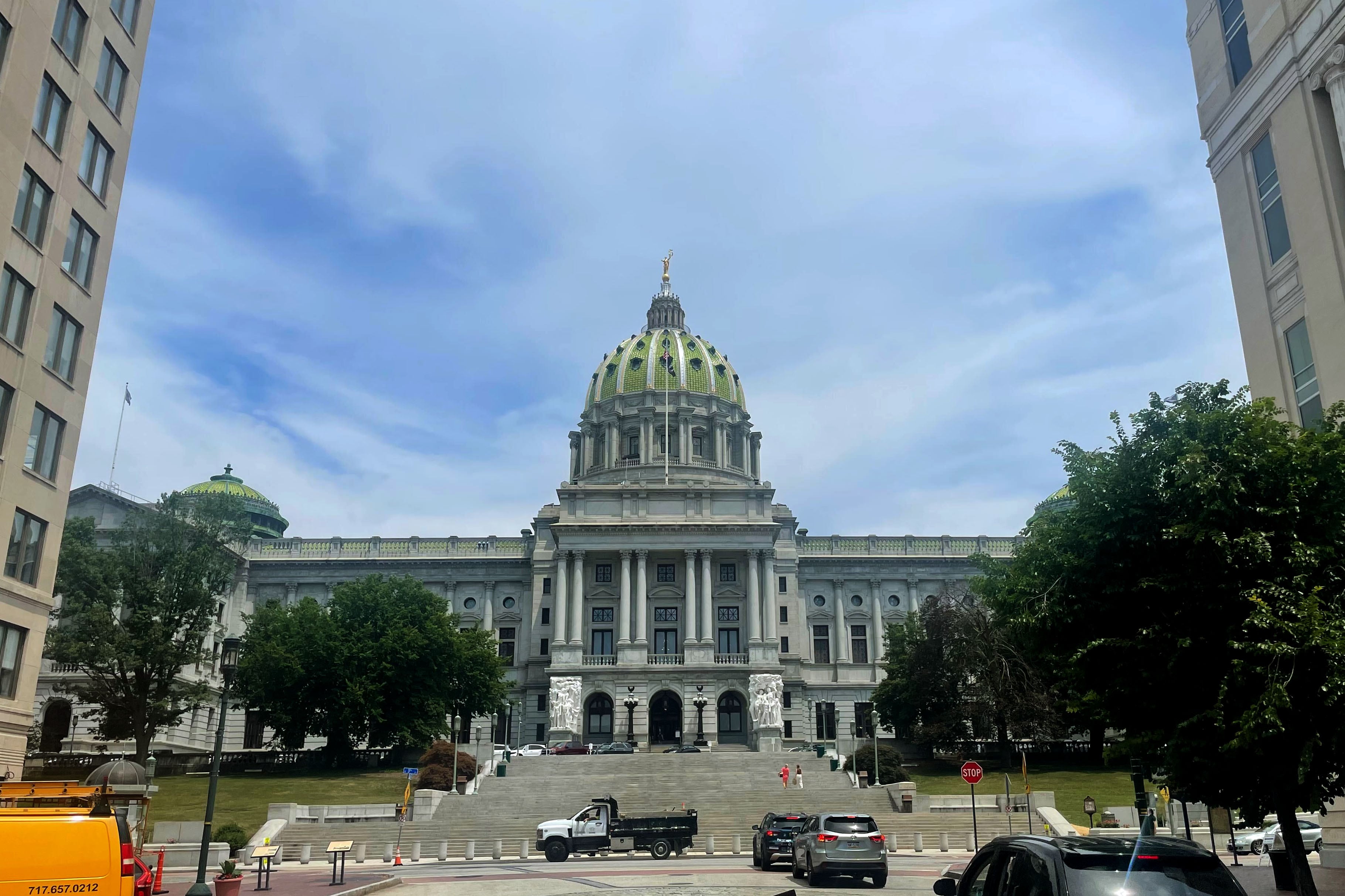Votebeat is a nonprofit news organization reporting on voting access and election administration across the U.S. Sign up for Votebeat Pennsylvania’s free newsletter here.
Listen to an audio version of this story produced in partnership with WITF News.
In a bipartisan effort to avert a potential crisis in certifying November’s election results, the Pennsylvania House passed a bill Tuesday that would cement the timelines for resolving post-election legal battles and prevent delays in finalizing the state’s electoral votes.
A federal law passed in 2022, the Electoral Count Reform Act, set a strict deadline for states to certify slates of presidential electors: Dec. 11. But Pennsylvania doesn’t have its own set of deadlines to meet that target, which could set the state up for a potential conflict with the federal law.
“This gap poses a significant risk of missing the federally mandated deadlines for certifying presidential election results,” said Rep. Benjamin Sanchez (D-Montgomery), the bill’s prime sponsor. “Our goal with HB 2473 is to mitigate this risk and guarantee Pennsylvania’s voice is heard and respected when Congress counts the state’s electors.”
This year, Pennsylvania officials are again preparing for a contentious presidential election, with former President Donald Trump returning as the likely Republican nominee. The Trump campaign in 2020 used the courts to challenge its loss in Pennsylvania, and seized on ambiguities in the U.S. Electoral Count Act to try to overturn the election, leading to the Jan. 6, 2021, attack on the Capitol. Trump has repeatedly declined to commit to accepting the results of the 2024 election, most recently in his debate with President Joe Biden in June.
As Votebeat and Spotlight PA reported in March, various scenarios risk pushing Pennsylvania’s electoral vote certification past the Dec. 11 deadline, potentially forcing the courts to intervene.
In Pennsylvania, election results must first be certified by a county board of elections, and a majority of that board could withhold their signatures from documents needed to certify a county’s vote, as happened with three counties in the 2022 primary.
Another delay could result from Pennsylvania’s law allowing as few as three voters to seek a recount in their local precinct. An influx of such recount petitions could tie up county certification in the courts, as the recount requests are processed. This, in turn, would delay the state’s certification. That’s what happened after the November 2022 midterm elections, delaying state certification until Dec. 22. In that year, there was no presidential race, though, and no federal deadline by which the state had to certify its election.
The bill tries to head off these scenarios in a number of ways. If a voter, candidate, or party wants to challenge a decision of a county board of elections — such as a county’s decision whether to count certain ballots — the bill would require that courts resolve that appeal within seven days.
In the event of contested presidential election results, if a party in a case wants to challenge a lower court’s decision, they have one day to appeal to the state Supreme Court. The Supreme Court must resolve the dispute no later than seven days before the presidential electors meet to cast their votes. This year, the court’s deadline would be Dec. 10, the day before the federal deadline for states to certify their slates of electors under the Electoral Count Reform Act.
The bill also places requirements on the Department of State. The secretary of the commonwealth would be required to certify the state’s election results by the fifth Tuesday after the election, which also falls on Dec. 10. It would also require the secretary to notify legislative leaders if they are going to miss the federal deadline to certify the election.
Twelve states have passed similar laws since 2022 to clear up conflicts between their state law and the Electoral Court Reform Act, according to the National Conference of State Legislatures.
Rep. Seth Grove (R-York) co-sponsored the bill, and two of his Republican colleagues joined him in voting for it. It passed 105 to 97.
“It’s a good step in building a complete election timeline (for the) judiciary, counties, state to make sure that we get to a point where we’re not a laughingstock of the country,” Grove said.
Grove noted, however, that judges sometimes hesitate to enforce deadlines set by the legislature.
Susan Gobreski, vice president of policy at the League of Women Voters of Pennsylvania, said she was glad to see the bipartisan support for “a centrist approach” to avoiding problems in the state’s election certification.
The bill still needs to pass the Republican-controlled Senate, where its prospects remain uncertain. Neither Sanchez nor Grove said they had reached out to their Senate counterparts about the bill. The state’s budget is still not finished, several days past the June 30 deadline, and that’s currently lawmakers’ focus. It’s unclear when the legislature will finalize a deal or when the state Senate will recess for the summer.
A spokesperson for Senate Republicans did not respond to a request for comment.
Update, July 10, 5:05 p.m.:
A spokesperson for the Department of State said they are confident Pennsylvania will meet every election-related deadline under federal law and are “reviewing the bill in its current form.”
“We would welcome any changes to the Election Code that ensure state law reflects federal requirements,” said Ellen Lyon, deputy director for communications.
Carter Walker is a reporter for Votebeat in partnership with Spotlight PA. Contact Carter at cwalker@votebeat.org.




